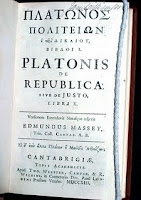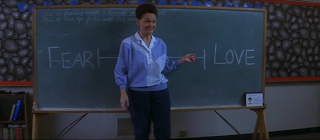italo calvino's if on a winter's night a traveler is one of my more recent favorites. have you ever noticed something you tend to do while reading? i don't just mean sitting in a comfy chair, but that too. i also mean things like notice that the author certainly used the word 'void' a lot. or that if this character says this one thing, someone's gunna die soon. now what if those patterns you notice or participate in were violated? what if they were pointed out to you in the very thing you're dissecting? would it make you uncomfortable? what if the plot wasn't resolved? would you put the book in the freezer?

this pile of words is so much stinking fun i have to bifurcate again. it's becoming habit, i know, but at least then you can pretend this is like a choose your own adventure or something where you don't actually have to read the whole thing, just the piece you want, but then you'll actually end up reading the whole thing anyway because what could have happened?! ok, you don't have to read the whole thing. but you do. you can't help it. just be glad i'm not.. trifurcating!! because i totally could.
so remember when i said that someday i would compare this book with brautigan's watermelony goodness? apparently 'someday' is today. so i guess you have to call that one guy you told 'maybe someday' and stave him off with the 'maybe' part. here are the things about which i will now expound:
is she talking about me? she can't be talking about me! yes, i am.
2. comparisons!
watermelons and feedings and travelers, oh my!
aaaaand they're off!
1. reader vs author vs character vs story vs ... verses.
ha. see what i did there? anywho. this tome of awesome makes a very sharp point about the act of reading. it dives deep into the reader's psyche and pokes and prods it, teasing it.
i suggested this book to my dear, angelic moms (right), and she assigned it to her book group at the library (you can decide later if that was awesome or mean). parentheticals aside, my moms has a blog too, go read it, she's a pro. and she gives away free books!
which brings me closer to my punto numero uno. calvino doesn't just pick the scab off your plot and character wounds. you know, all those times you were really into a book but the plot left you with all kinds of dangling chads, or a character you fell madly in love with died or turned out to be an a-hole or whatever. he also plays with the roles we assume and interact with and assign as we read. i am the reader, this dude wrote this book, some people on the east coast published it, a nice lady like my moms will help you find it in the library, your friends will see it on your shelf and give you a funny look like you're a crazy person... and these roles are all mutually exclusive. JUST KIDDING.
seriousface, first paragraph of the book. calvino begins his experiment (on you) thusly:
oh, that's right. he went there. the whole first chapter is in the second person. who does that?! YOU. you have been cast as the reader and you are taking directions about how to go about reading this book you're reading. tasty treat: when i started reading this book for the first time i was on my exercise bike, so it really made me giggle a few paragraphs later when he begins to talk about the most comfortable position, chair, etc. for reading.You are about to begin reading Italo Calvino's new novel, If on a winter's night a traveler. Relax. Concentrate. Dispel every other thought. Let the world around you fade. Best to close the door; the TV is always on in the next room. Tell the others right away, 'No, I don't want to watch TV!' Raise your voice - they won't hear you otherwise - 'I'm reading! I don't want to be disturbed!' Maybe they haven't heard you, with all that racket; speak louder, yell: 'I'm beginning to read Italo Calvino's new novel!' Or if you prefer, don't say anything; just hope they'll leave you alone.
the first question we asked the book group was,
and the answer was a resounding yes. ok, so this is half of the reason the book group was a little irked: every other (like 1, 3, 5, not every single other) chapter is directed at you, the reader. but the reader evolves. no spoilers. the other other chapters (you know, 2, 4, 6) are stories. like the kind you're actually familiar with. with plots n recognizable tannins. the second half of the reason the book group was a little irked is that none of these little short stories has an end. that's right, and it's not a spoiler, i promise.was this book hard to read?
 you read the first chapter, get into it, don't really know what's going on because you've just been talked at by a chapter about the act of you reading, but you go with it, thinking ok, that was weird, but i guess this book is about this dude at a train station NOPE. and it is not a choose your own adventure, so don't try skipping the next chapter to see what happens next in that story. you'll just find another beginning. there is purpose and reason, mind you. just no minor resolution to these minor tales. this is a book about your relationship with it, with reading, with words, with stories, with.. your expectations.
you read the first chapter, get into it, don't really know what's going on because you've just been talked at by a chapter about the act of you reading, but you go with it, thinking ok, that was weird, but i guess this book is about this dude at a train station NOPE. and it is not a choose your own adventure, so don't try skipping the next chapter to see what happens next in that story. you'll just find another beginning. there is purpose and reason, mind you. just no minor resolution to these minor tales. this is a book about your relationship with it, with reading, with words, with stories, with.. your expectations.moving right along...
2. comparisons are odious.

Meaning: Comparison (especially of people) is not productive and can have unpleasant consequences. People should be judged on their own merits.
Note: comparison (noun) = the act of comparing | compare (verb) = measure or note the similarity or dissimilarity between people or things | odious (adj) = extremely unpleasant; distasteful.thank you, english club, but i am inclined to respectfully disagree. one can make all sorts of synaptic connections and find more relevant meaning when comparing. and comparing people is just fun. and part of our culture. but i digress.
while this book should be judged on its own merit (and i judge it fan-freaking-tasticulous), i also noticed that picking on the reader, speaking to the reader, and fiddling with the reader's expectations are not totally unique concepts. particularly, i am referring to a reference to which i have already referred: in watermelon sugar.
in in watermelon sugar, our main character doesn't have a name, and he's speaking directly to you, reader, and so much of what he tells you depends on your interpretation of it. he won't just tell you what you expect, or how you expect to be told; he tells you whatever his crazypants brain feels like, and places the responsibility on you, reader, to make sense of it. this can frustrate some people.
i also mentioned Feed, and implied this book warrants comparisons there as well. seem far-fetched? ha! ok, it's a bit of a stretch. what made me feel these two are distant cousins is twofold (oh, not again with the forking): the relationship to words - if on a winter's night is all about the reader's relationship to words and to books and the whole world of reading, right? you don't know, i know, so yeah, i'm right; AND the way the author toys with the reader by using different .. angles. in the case of feed, those angles are different media (i mean, still words, but advertisements and song lyrics - not just plot).
 well, in feed, books don't exist anymore really. they're not commonplace, anyway. no one reads. there's no reason to, in their new blink-of-an-eye entertainment and knowledge future. and the consequences there are quite fun. at one point our protagonist (or is he?) makes fun of his smartypants girl friend for using a pen and paper. they're totally foreign objects to him.
well, in feed, books don't exist anymore really. they're not commonplace, anyway. no one reads. there's no reason to, in their new blink-of-an-eye entertainment and knowledge future. and the consequences there are quite fun. at one point our protagonist (or is he?) makes fun of his smartypants girl friend for using a pen and paper. they're totally foreign objects to him. then Anderson throws song lyrics at you, Reader, from popular songs in this not-so-distant future. i'd give you a side-by-side comparison of some of the lyrics included in the novel with some of today's pop song lyrics, but instead, let me just give you another awesome chart to make my point.



















